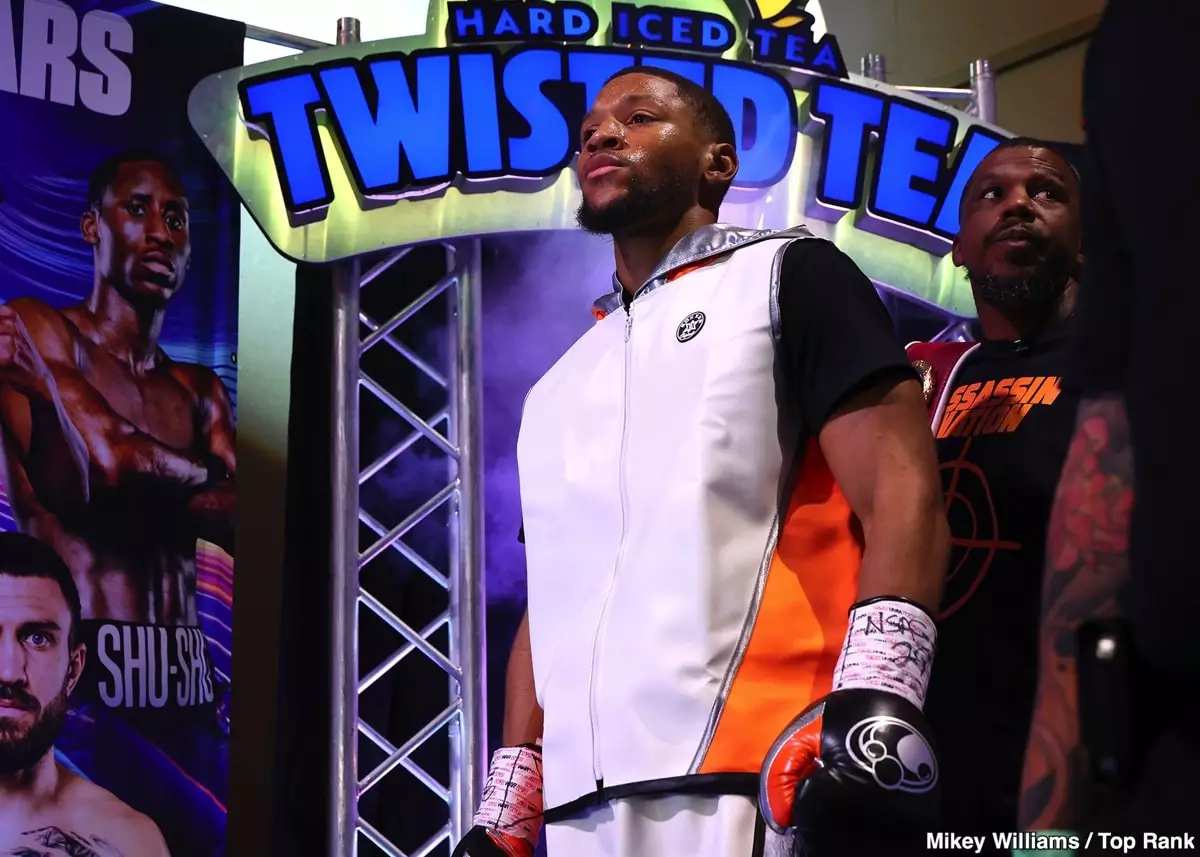In the ever-pulsating world of professional boxing, negotiations can make or break a fighter’s career, especially when it comes to high-stakes unification bouts. The recent collapse of talks between WBO welterweight champion Brian Norman Jr. and IBF champion Jaron “Boots” Ennis reflects the intricate—and often problematic—relationship between fighters, promoters, and financial incentives. Derek “Bozy” Ennis, trainer to Boots, has expressed clear frustration, attributing the failed negotiations to Norman Jr.’s demands. However, a deeper analysis suggests that both sides bear responsibility for this unfortunate outcome.
Bozy has argued that Norman Jr.’s request for a $2.2 million purse, up from the original offer of $1.7 million, was the primary stumbling block. From a trainer’s viewpoint, this complaint appears justified; after all, why should a champion not seek fair compensation for putting his title on the line? The fact that Norman Jr. was willing to fight in a neutral location, Las Vegas, for the original offer demonstrates a willingness to compromise. It raises the question: was Boots’s camp hesitant to engage a fighter with Norman Jr.’s power and skills?
An Athlete’s Perspective on Financial Health
A standout point in the negotiations was Norman Jr.’s concern over financial viability. As he is reported to have mentioned concerns over paying promoter Bob Arum and other expenses, it underscores the financial burdens that even up-and-coming champions face in the boxing world. It’s not merely about the purse; it’s about how much of that payout translates into take-home pay after promotional fees and other costs. Here, Bozy’s dismissal of Norman Jr.’s financial concerns may indicate a myopic view of what it truly means to pursue greatness in the sport. For any fighter stepping into the ring, financial security can be the difference between a sustainable career and a few short years of high-risk employment.
In stating that Norman Jr. only received $100,000 for his previous fight against Giovani Santillian, Bozy cleverly attempted to paint a picture of ungratefulness, insinuating that a champion ought to be grateful for any sizable offer. This misses the nuance of a fighter’s finance. Norman Jr. likely seeks to assure that the potential earnings reflect his growing status as a champion, a perspective that shouldn’t be criticized but understood.
The Perils of Location and Fan Expectations
Interestingly, the geographical aspect of the fight also played a significant role in the negotiations. Team Ennis was adamant about hosting this high-profile battle in Philadelphia, a decision presumably linked to maximizing local fan support and ticket sales. From an economic standpoint, having the event in a favorable location can drastically affect the event’s revenue. Yet, in boxing, fan loyalty and the test of merit often clash.
By refusing the Las Vegas neutral ground option, Team Ennis may have inadvertently narrowed their own paths to bigger fights. In an era where promotional giants constantly scheme to create the next blockbuster event, the rigidity displayed by either camp raises alarms. With fans increasingly frustrated by the lack of significant matchups, the missing box office draw may weaken both fighters’ futures, irrespective of who initially “won” this bout of negotiations.
A Silhouette of Missed Opportunities
As we examine the fallout, it becomes crucial to scrutinize Boots Ennis’s performance against Karen Chukhadzhian. The potential for a unification bout was overshadowed by a fight that many regarded as underwhelming. This solitary experience begs a larger question regarding the meticulous management of a fighter’s career. The refusal to compromise on the promised purse could ultimately have a counterproductive effect, hurting Ennis’s credibility in the championship sphere.
The fallout from these debates showcases a much larger issue existing in boxing—one where the fighters may be too easily reduced to numbers on a contract. The lack of willingness to amend the offered purse by a mere $500,000, in hindsight, seems uninformed. Could investment in a more significant payout have yielded far better long-term prospects for Ennis’s career? Could a refusal to expand the budget foretell a pattern of conservatism that might hinder the fighter’s trajectory?
Both camps must grapple with the consequences of their strategic miscalculations. The negotiation breakdown leaves fans speculating what could have been, and whether reputations were unduly defended at the expense of pursuing a title that encapsulates years of hard work and athletic discipline. In boxing, history often remembers not just the champions but also the missed opportunities that had the potential to reshape careers and legacies.


Leave a Reply